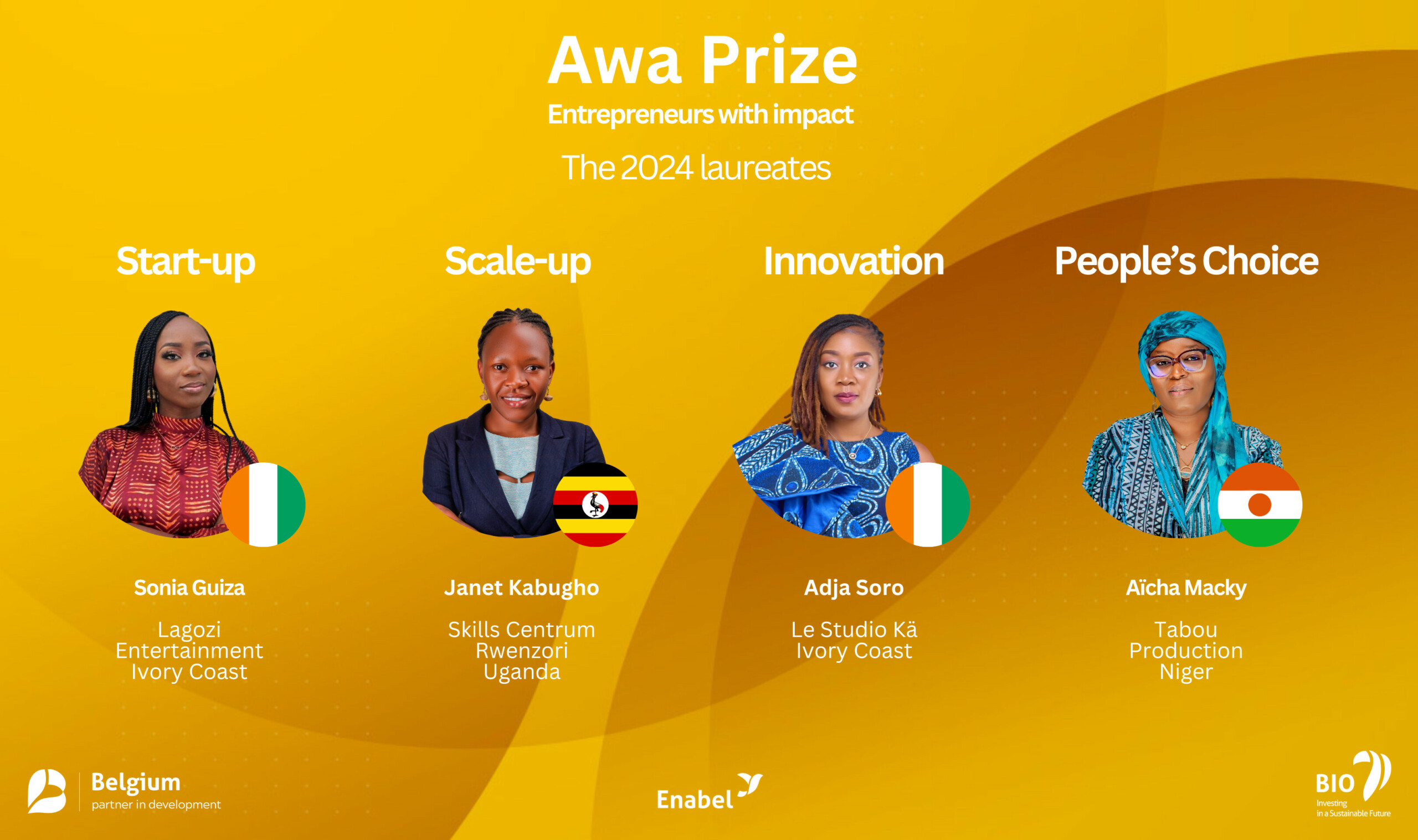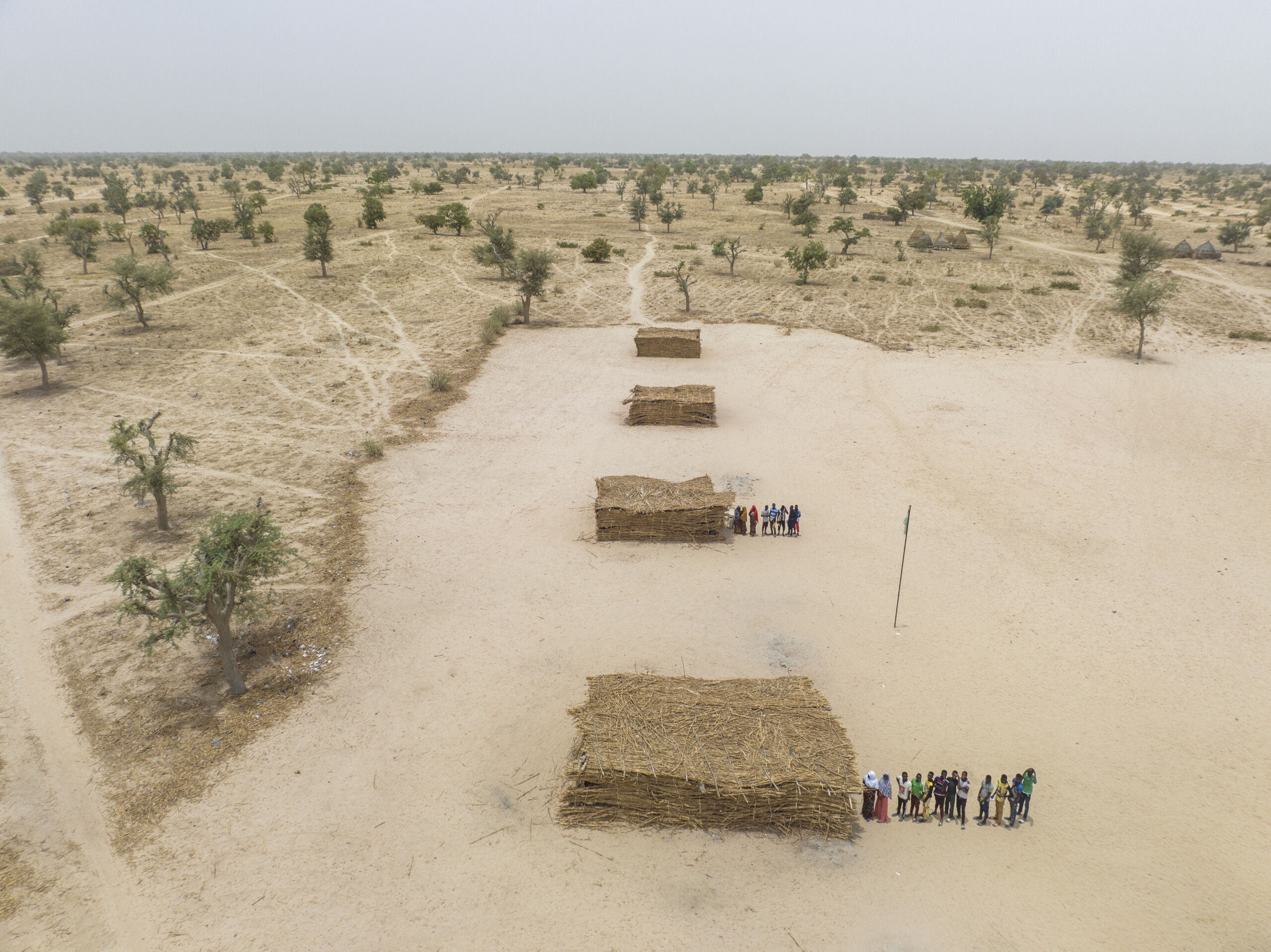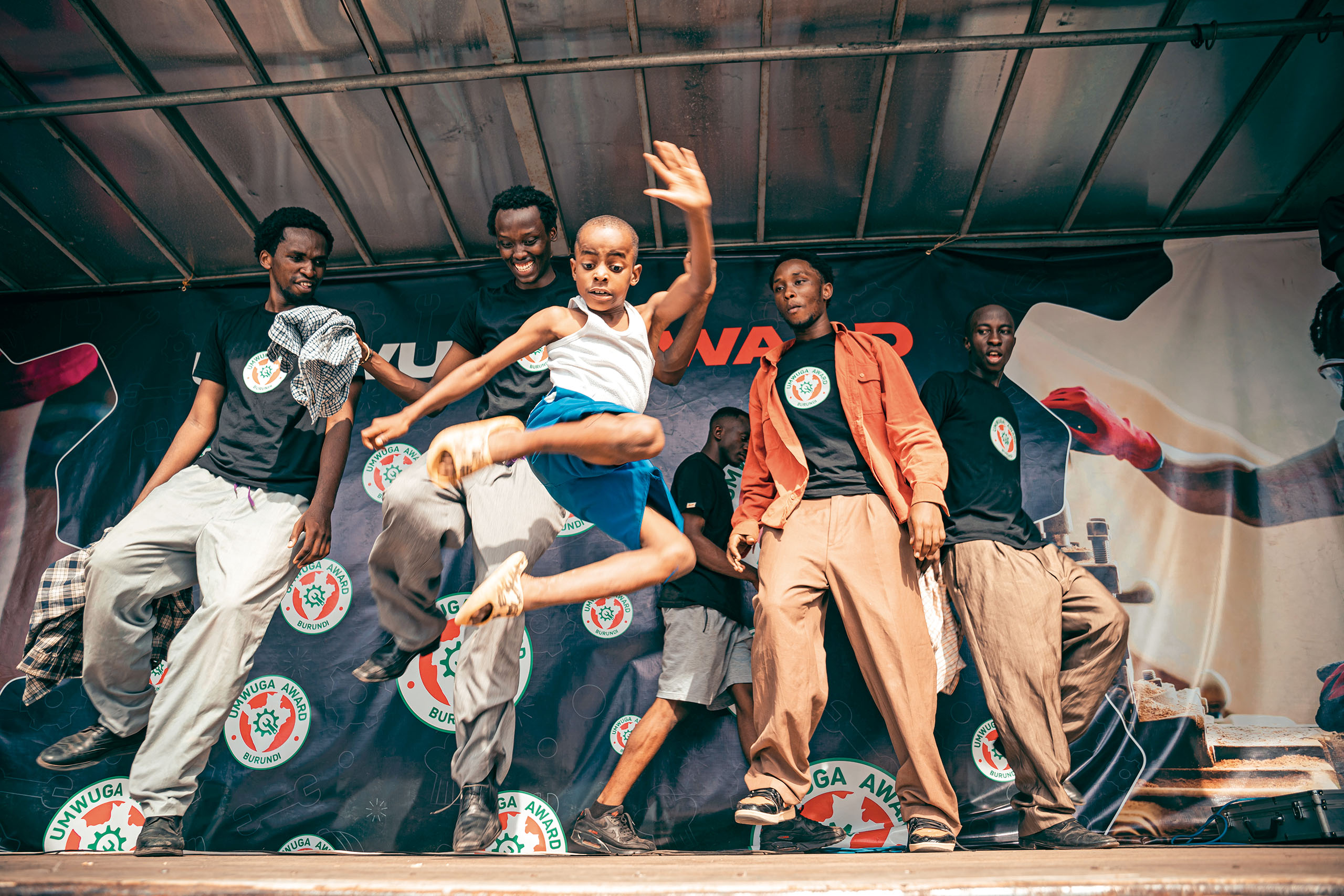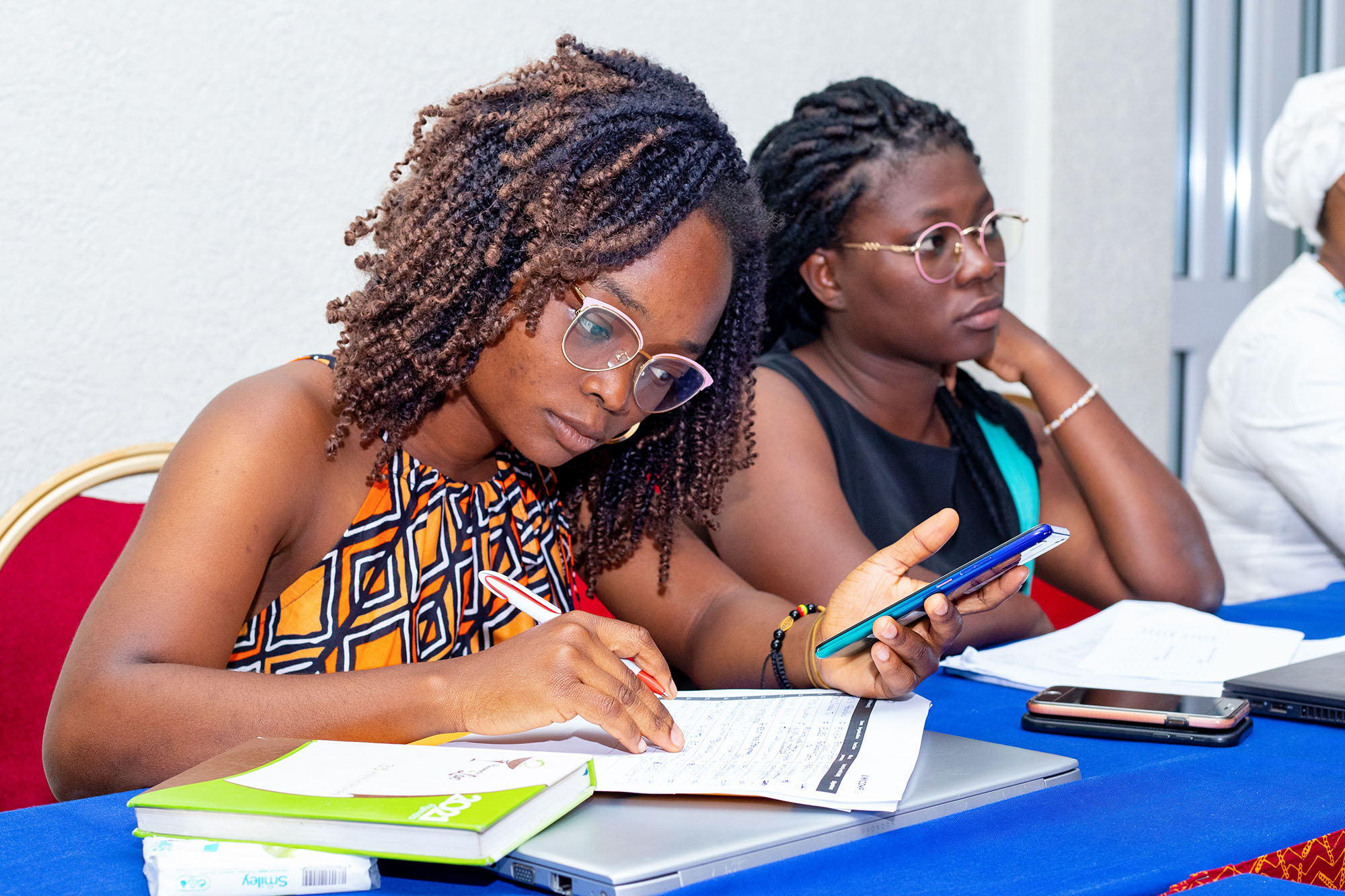The missing link

Enabel has some ambitious goals laid out in the #ActForImpact strategy. One of the goals is ‘Beyond Aid’. How should we understand this?
By 2050, one person in four in the world will be African. By 2100, it will be almost one in two. These are the facts. While the European population is ageing and stagnating, the median age in Africa is 20 years. So the development of the African continent is an extraordinary opportunity for Europe and the world. Africa is a hotbed of creativity and innovation, and we are convinced that the great inventions of tomorrow will come from Africa.
In this context, our cooperation model needs to be completely transformed, and we are proud of Enabel’s recent changes in strategy and attitude in that regard. It has long since ceased to be about North-South relations; it is now about fully fledged partnerships with the countries of Africa and the Middle East, about collaboration among equals, about shared ideas and innovation that by no means comes only from ‘our side’.
We also have long since stopped talking only about what expertise we have to offer as an agency. Our role has evolved and we now offer Belgian and even European know-how too. Belgium has high-quality expertise at the institutional level, in certain themes and sectors, industries, etc. And this is what our partners are looking for: know-how and experience in areas beyond development cooperation. In Belgium, for example, large quantities of vaccines are produced. Our scientific research into vaccines is world class; our regulatory framework for the production and sale of vaccines is reliable.
It is the combination of those elements, a kind of pharmaceutical ecosystem that we are trying to create with Senegal, Rwanda and the African Union. In order to be able to do so, you need to work with a great many different partners. We are gradually succeeding in assuming that role of ‘broker’, in gaining recognition as the ‘hub’ of Belgian and European expertise. Along with our partners in Africa and the Middle East, we go out in search of the most appropriate Belgian expertise at various ministries and institutions, so we can work on such an ecosystem. It could be in health care, education, urban development, security – you name it.
Enabel has signed dozens of collaboration agreements with Belgian government departments, research institutions, knowledge centres and universities. Is it difficult to get them to buy into your story?
All partners must, of course, find some added value in such a collaboration; otherwise, they will drop out. We need to explain more and better on that front what that added value could be for the Belgian players. There is a role here for politics and the media, which can help promote this more modern vision of international collaboration.
We need to explain to the general public that Africa is a continent of opportunity, a hotbed of ideas, of innovation. Belgian experts from our ministries can usefully share their knowledge and experience with their African colleagues – and from this collaboration, they will draw at least as much inspiration and motivation for their own work.
For this country, such partnerships are also strategically interesting because they create a certain impression of Belgium and strengthen our credibility abroad. We should not view development cooperation as something compulsory, or like a form of charity. It is a strategic tool for Belgian priorities – part of the ten-year vision that Belgium should have. There must be a link between development cooperation and the knowledge that Belgium wants to develop in a number of chosen sectors, such as renewable energy (offshore wind farms, green hydrogen), vaccines, innovative social approaches, etc.
How would you describe Enabel’s DNA?
What characterises us is that – in all modesty – we have a good knowledge of the countries and the context in which we work. Our financial resources are what they are, but our greatest riches are our staff members. Ninety percent of our personnel work in the 21 countries where we operate and on the projects. The knowledge and know-how they have are priceless. But our expertise extends much further: thanks to collaboration agreements with government departments and research centres, Enabel can offer an incredible wealth of knowledge in a wide variety of sectors.
Thirdly, we have the great advantage of being present in the ministries where decisions are made, and we also collaborate with local governments in the practical implementation of projects, where decisions are turned into reality. In recent years, we have perhaps focused a little too much on project operation, with not enough regard for that institutional leverage. This is where we need to catch up in the coming years, because it is at the institutional level that you really set things in motion.
What other changes are you proposing to stay relevant?
Looking ahead to our 2030 ambitions, we are on track and have already come a long way. But to remain relevant, we need to knock down some walls. More than ever, we need to collaborate with other players, with the business world, organisations, the diaspora, government agencies, etc. What we call ‘development’ is certainly not the monopoly of agencies like Enabel. To develop a country, to create prosperity, the government, business and civil society must work together. Everyone has their role to play, and it is best to do that together, not side by side.
First of all, let’s talk about international collaboration, on an equal footing with our partners, making determined choices and, with full conviction as Team Belgium, using the expertise of our whole country, including – and without being naïve – the private sector. And without forgetting the diaspora. Equally importantly, we must have the honesty and courage to remind our partners of their duties and to make them take greater responsibility. If a project is going pear-shaped or is at risk of being hijacked, we should have the courage to pull the plug.
For example, if you want to support a country’s education system to make it more efficient or to implement reforms, and you know that teachers are paid little or nothing, then you know that you are heading straight for failure, right? Why should we not be allowed to impose prior conditions, so that teachers must first be paid a decent wage before we start supporting the education system? We should sometimes be able to be more selective, and more flexible when the context demands it. There is no reason at all why ‘our’ sector – the industry of international collaboration – should maintain different rules than a development project in Belgium. Traditional development cooperation must be ‘de-industrialised’. No single notion of a development worker exists. We do not work for our own honour and glory, but to make a difference where we can.
Recently, at a meeting of Belgian export services and Belgian and Congolese entrepreneurs from the diaspora, we were bothered to note that they do not know of our agency, even though we are natural allies for working – in this case – with Congo. It makes no sense to work side-by-side and remain blind to one another. People from the diaspora invest in their countries of origin through remittances, and sometimes take up influential positions in their countries’ government structures. This is also important for our work.
But we are learning. In our ‘classical’ projects, we ensure that vocational training in a country is better matched to the needs of the labour market, in collaboration with the educational world, employment services and the business world. We are also implementing a number of projects that experiment with so-called professional mobility. In Senegal and the Ivory Coast, we are working with employers’ associations to look for promising small entrepreneurs, whom we then put in contact with companies in Belgium so they can exchange ideas and explore new markets together. At the same time, we are putting the West African diaspora in Belgium in contact with organisations in Senegal and the Ivory Coast so they will be encouraged to invest in their countries and launch or support economic activities.
Do you have the appropriate tools to put this new evolution into practice?
We need to adapt our tools to reality. To date, our main tool has been the gift – financial support to countries in trouble. But Africa is a continent of 54 countries, and all those countries have their own face, their own character, their own context. There are vulnerable countries where the risks are greater – just think of the countries in the Sahel. But there are also countries like Senegal, Rwanda or Uganda where you can use other tools.
Even within the same country, you can have huge regional differences in terms of security and prosperity. The trend is that people are moving more and more to the cities, that cities will develop faster, and that urban-rural inequality will increase. We need to expand our range to respond appropriately to each specific situation. Perhaps a regional approach might make more sense, rather than working at the country level.
What can an agency like Enabel actually do? Your operating revenue is 340 million euros. In itself, of course, this is a lot of money, but it is ‘only’ as much as the annual budget of a city hospital in Brussels.
Over the past few years, our turnover has risen sharply, from 227 million euros in 2018 to 340 in 2022. This is a significant increase that we can achieve thanks to the Belgian governmental cooperation because we leverage it to tap into other sources of funding as well. Not only is that good for Enabel, it also contributes to Belgium’s image abroad.
Of course, we must remain humble and realistic. We are not going to integrate Africa with the resources at our disposal. But if we make smart use of those resources, we can make a difference. Our strength is that we provide institutional support, as a priority partner of government departments in the countries where we work. We can really initiate change there at the source, by putting our experts in the ministries. Our national programme in Mozambique, for example, is modest, but our climate finance expert in the Ministry of Finance advises the Mozambican government on how to get its climate plans funded. That has an impact.
Jean Van Wetter – Managing director of Enabel
Delphine Moralis – Chairwoman of the board of directors





